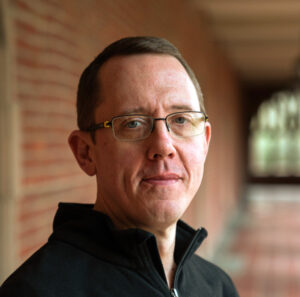
Erik Nielson, University of Richmond professor whose expertise is hip hop culture and African American literature. His recently published book is “Rap on Trial: Race, Lyrics and Guilt in America”
by James A. Bacon
What the Richmond Times-Dispatch considers news this morning…
Headline: “Task force creating Richmond police oversight board publicly calls out Chief Smith.”
Excerpt: “At some point, the unwillingness to engage with this body does start to feel like arrogance. I don’t think we can overlook it,” task force member and University of Richmond professor Erik Nielson said during a public meeting Wednesday. “If you’re watching a task force creating a civilian review board that could potentially just co-opt your authority, and there’s nothing. It makes me feel like they don’t believe it or they’re just not going to deal with it. They think they can get out of it.”
Here’s what WTVR considers news today:
Headline: “Widow tired of dodging bullets in Richmond neighborhood.”
Excerpt: “You don’t even want to be in front of the windows. You don’t even play your television too loud. You go to bed and cover your head,” said Alice Trip who has lived near Powell Road for five decades. … “I heard a lot of gunshots, but that’s nothing new because we hear them quite often,” Tripp said about Thursday night. “It seems to be part of life now.”
Questions for readers:
- What are the odds that Erik Nielson lives on Powell Road — or any other crime-ridden neighborhood where he fears for his physical safety?
- Is it possible that Richmond Police Chief Gerald M. Smith has more pressing matters to attend to than answering Nielson’s texts, emails and phone calls?
- If there is arrogance on display, could it be the arrogance of a white university professor lecturing a black police chief?
- What does the RTD coverage of the “the police chief won’t answer my emails” story say about the world view of its reporters and editors? Is the news staff more likely to share the preoccupations of white university professors — Richmond’s cultural elite — or working class residents living in a poor neighborhood?



